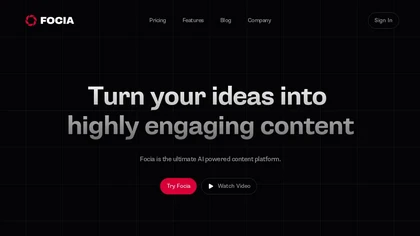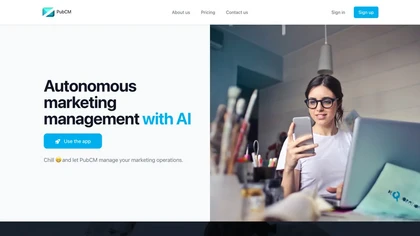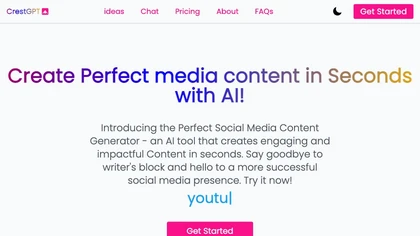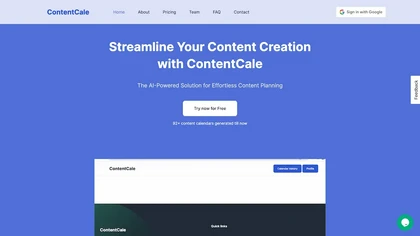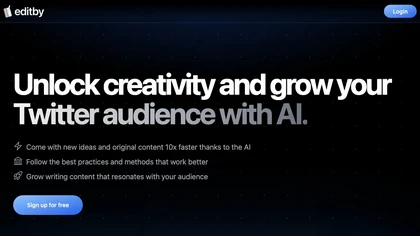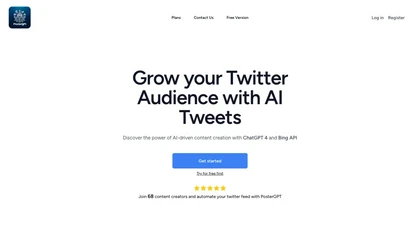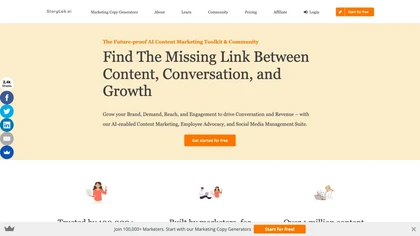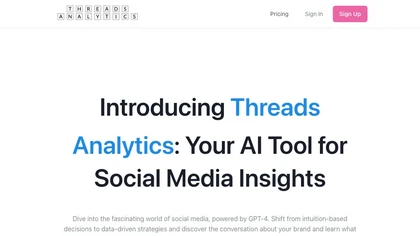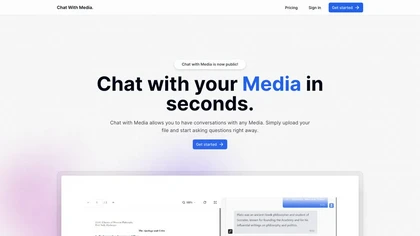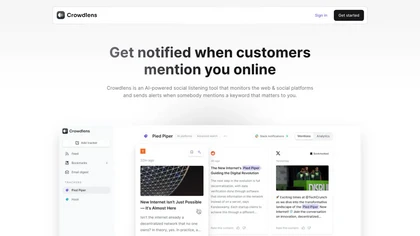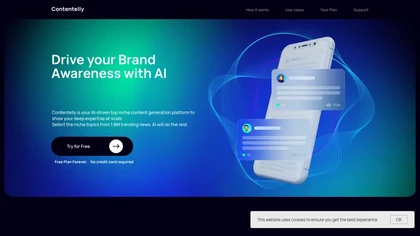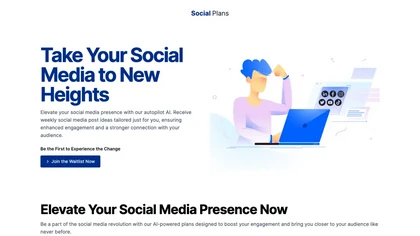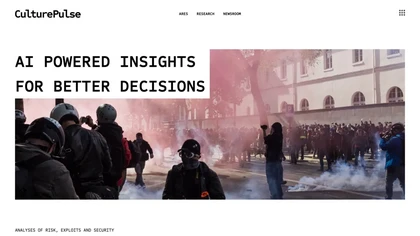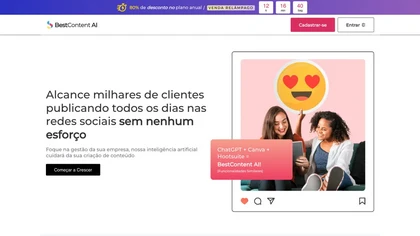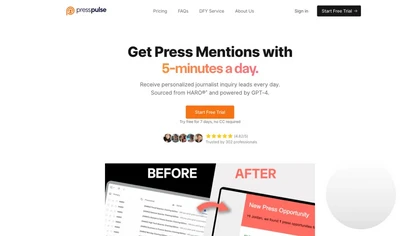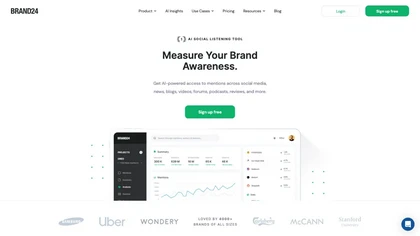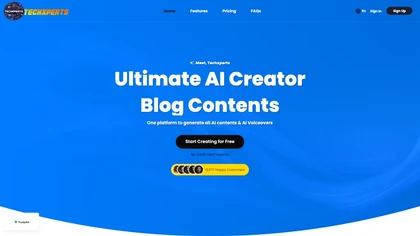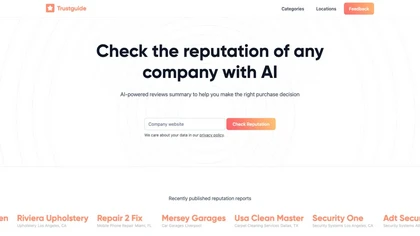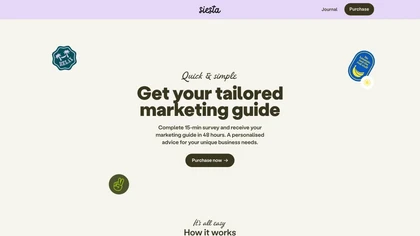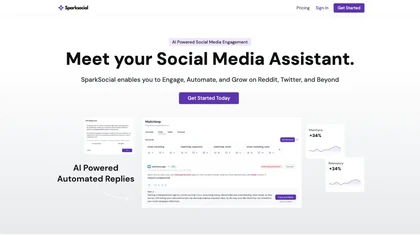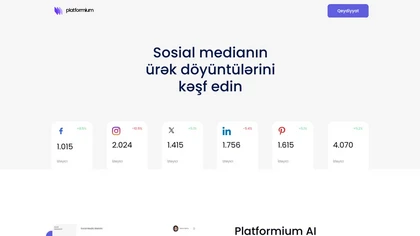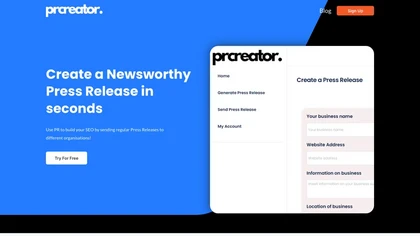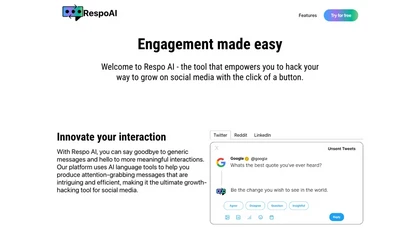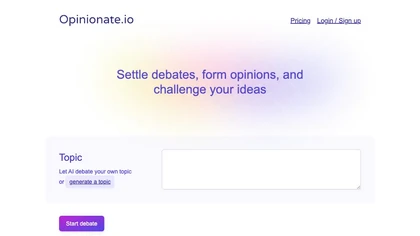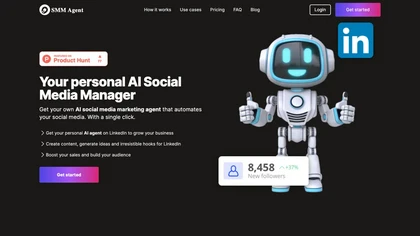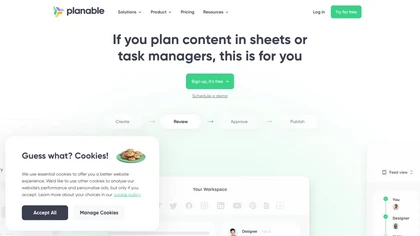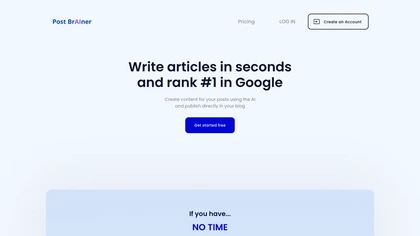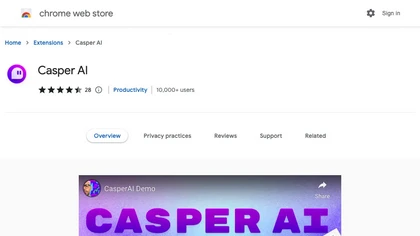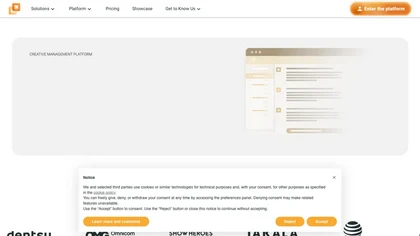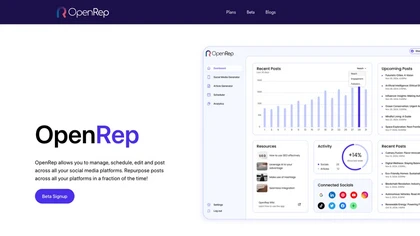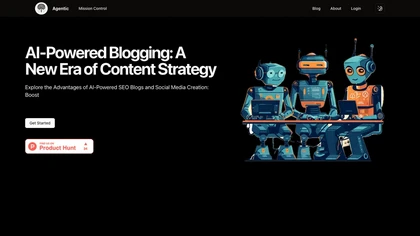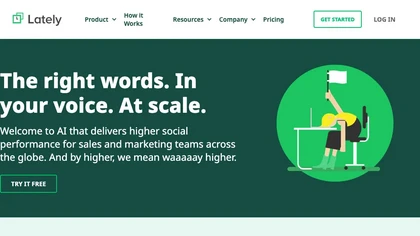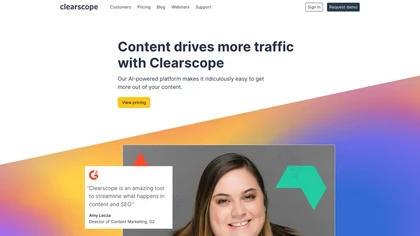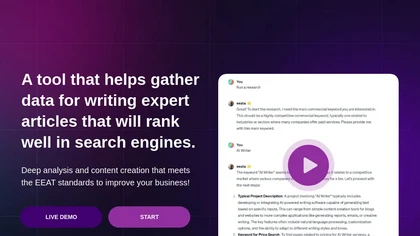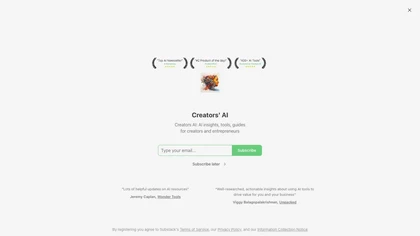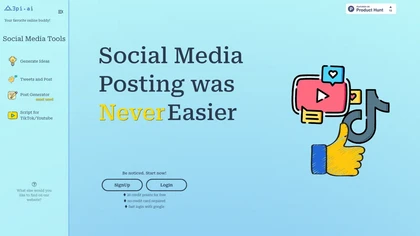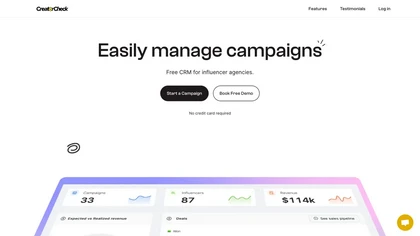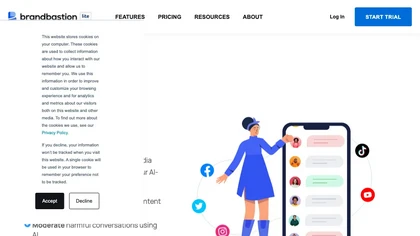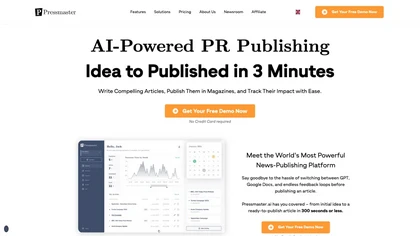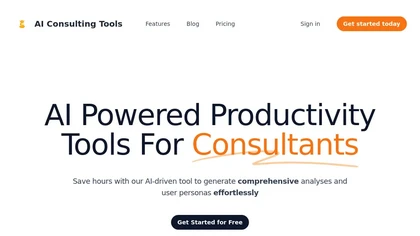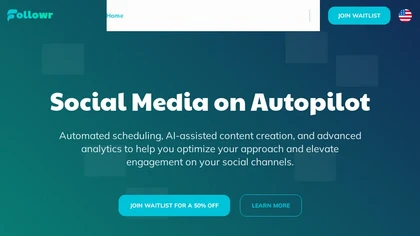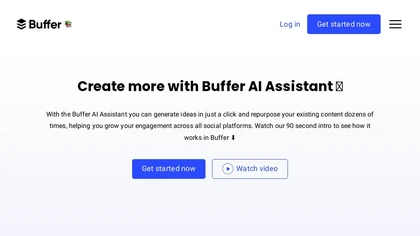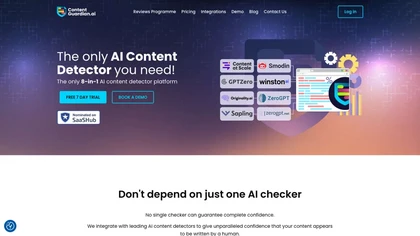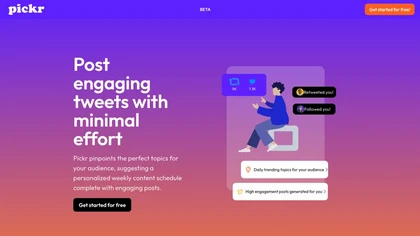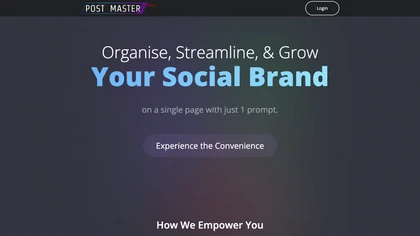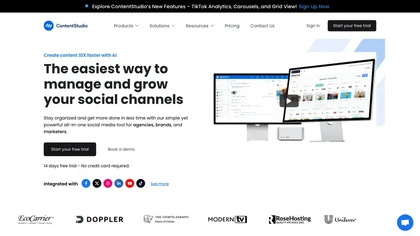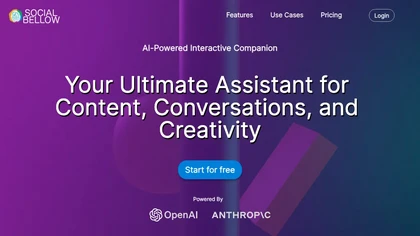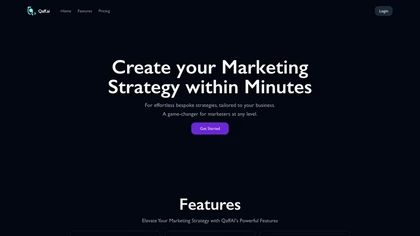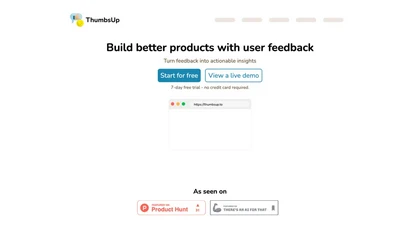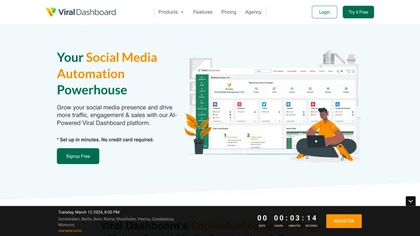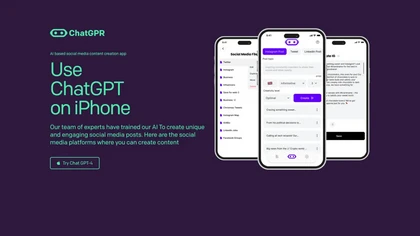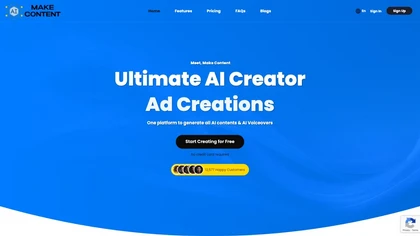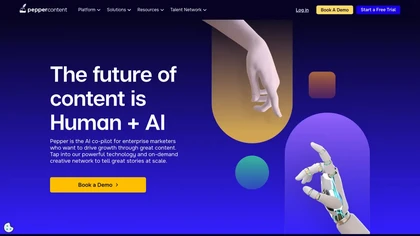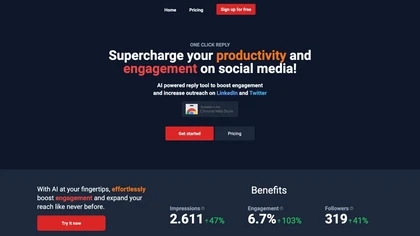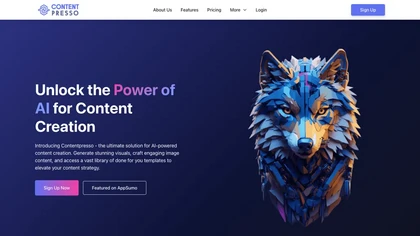AI use cases for Public Affairs
Generative AI can be applied in various applications for public affairs. Here are some examples to explore below for inspiration with AI tools to get you started with using AI in public affairs.
🛠️ 70 AI tools for Public Affairs
Explore a dynamic list of some of the most popular tools to get you started with various AI use cases and applications for Public Affairs to streamline your workflows and productivity today.
Focia features
- Content generation
- Engagement analysis
- Real-time trend tracking
- Multiplatform optimization
- Personal content guidance
PubCM features
- Automate social media management tasks
- Provide technical support through AI innovations
- Generate text and image posts
- Schedule posts on social media channels
- Customize post personalities and moods
CrestGPT features
- Generate twitter threads
- Generate facebook posts
- Generate linkedin posts
- Chat with the ai
- Access idea base
ContentCal features
- Generating a content calendar
- Suggesting content ideas
- Creating a content strategy
- Early access subscription
Editby features
- AI content generator
- SEO optimization
- Brand awareness
SocialPostGPT features
PosterGPT features
- Automate Twitter feed posting
- Advanced AI for content curation and creation
- Automatic fetching of up-to-date news
- Creation of engaging social media posts
- Various subscription plans tailored to social media needs
🔥
Create your account, save tools & get personal recommendations
Receive a weekly digest of our handpicked top tools.
Unsubscribe anytime
StoryLab.ai features
- AI-enabled tools for content marketing, employee advocacy, and social media management
- Over 100,000 marketers trust the toolkit
- Has helped create over a million content pieces and saved one million creator hours
- Features content generators, social media caption generators, ad copy generators, and more
- Empowers users to create compelling content and campaigns efficiently
Meta Threads Analytics features
- Analyze social media data
- Make data-driven strategies
- Discover conversations about brand
- Provide recommendations to reach potential customers
- Gain insightful recommendations to grow online presence
Chat With Media features
- File upload capability
- Instant question asking feature
- Media file processing
- Real-time chatting functionality
- Insights extraction
Crowdlens features
- Real-time keyword monitoring across social and community platforms
- AI-powered relevance scoring
- Sentiment analysis
- Shareable reports for tracking conversations
- API access for programmatic consumption of mentions
Creative Blog Topic features
- Real-time cross-social media trend analysis
- Coverage of major social media platforms
- Tailored trend analysis for specific needs
- Keyword monitoring for tracking real-time trends
- AI trend analysis for identifying current trends and recommendations
Contentelly features
- Creating niche posts
- Select from 1.8 million trending news topics
- Plan, support, and drive brand awareness
- Generate top-quality niche content at scale
- Offering a free plan with no credit card required
evalmyBRAND features
- Sentiment analysis
- Machine learning algorithms
- Natural language processing
- Social media monitoring
- Case management
Social Plans features
Press Hook features
- AI-Generated Media Kit
- Instant Press Releases & Pitches
- Always-Relevant Source Requests
- Curated Media Lists
- Optimized PR Workflow
EasyPR AI features
- Smart keyword search
- Ai query summaries
- Personalized email pitch writing
- Extensive database
- Press coverage
- Media relationships
- Daily keyword email alerts
- Advanced query analytics
CulturePulse x Reddit features
- Insights and analyses generation
- Creation of psychologically realistic digital twins
- Global news stream analysis
- Simulation of risk-free environments
- Real-time analytics and predictive AI capabilities
BestContent AI features
- Automated post creation
- Tailored content creation based on brand's visual identity, hashtags, and contact details
- Posts generated in under 20 seconds
- Efficient content creation process
- Ideal for businesses and individuals seeking to enhance their social media strategy
rapidely features
- Smart scheduling
- AI-assisted copywriting
- Carousel maker
- Trending audios
- Personalized content strategy
PressPulse AI features
- Personalized journalist inquiry leads
- AI pitch drafting
- Tailored media opportunities
- Precision in navigating the media landscape
Coverposts
1.8Coverposts features
- Automate the process of repurposing blog content for social media
- Generate captivating ai-powered social media posts
- Save time and money
- Personalize style to match brand
- Share directly to popular social media platforms
Brand24 features
- Sentiment Analysis
- Authority index calculation for discussion participants
- Alerts for significant changes in discussion quality & quantity
- Data Exporting to automated PDF reports, .xls files, and infographics
- Filtering results by mention source, sentiment, number of visits, etc.
Techxperts features
- AI image creation
- AI voiceovers
- AI speech-to-text transcription
- AI code generation
- Creative AI virtual assistants
Trustguide features
- Public reviews analysis
- Insightful summaries generation
- Neutrality commitment
- Aggregation of diverse opinions
- Prioritization of accuracy
Siesta features
- Personalized marketing guide generation
- Survey completion in 15 minutes
- Tailored to unique business needs
- Step-by-step instructions
- Convenient to-do list for tracking progress
Sparksocial features
Platformium AI features
- Convert conversations into actionable insights
- Gather and analyze online opinions
- Monitor online chats, reviews, and opinions
- Provide comprehensive analysis of user feedback
- Evaluate comments based on tone and emotion
The PR Creator features
- Press Release Generation
- SEO Improvement
- Automated Editing
- Automated Sending
- Free Trial
Post AI features
- Content generation
- Curating blog posts
- Assisting with blog topics
- Enhancing creativity and engagement
Respo AI features
- Automated generation of engaging messages for social media platforms
- Support for Twitter, Reddit, and LinkedIn
- Chrome extension for crafting responses seamlessly
- Harnessing AI language tools for crafting impactful content
- Enhancing brand reputation and authority in the niche
Opinionate features
- Generates debate topics
- Challenges participants to form opinions
- Fosters open discussions
- Exchange of ideas
socialplaces.io features
SMM Agent features
- Automates social media tasks with a single click
- Creates AI social media marketing agents
- Eliminates the need to hire a social media manager
- Helps set goals and track performance
- Generates ideas and monitors trends
Planable features
- Content planning
- Approval workflow
- Collaboration tool
- Centralized platform
- Real-time updates
Post BrAIner features
- Generate article ideas
- Create SEO-optimized posts
- Publish directly to WordPress
- User-friendly interface
- Customize post length and title
Casper AI features
- Summarize articles
- Create content
- Share insights
Connected-Stories GenAIssance features
- GenAI technology for dynamically generating personalized creative content
- Leo, a conversational interface for refining target audiences and developing narratives
- Personifai for analyzing real-time signals and delivering optimal content experience
- Actionable insights for optimizing content in real-time and tracking engagement rates
- Data security and sustainability features ensuring content adherence to brand guidelines
OpenRep features
- Scheduling posts
- Content generation
- Captions customization
- Image generation
- Analytics monitoring
Agentic features
- AI-powered research on topics
- Text compression capabilities
- SEO-optimized content generation
- Fully-featured text editor
- Professional image creation
Writeonce features
- Generate a full blog body
- Generate metadata
- Copy and paste content to various platforms
- Share blog links on microblogging sites
Lately AI features
- Content repurposing
- Social media management
- Employee advocacy
- Sales
- Ai insights
Content Optimizor features
- AI-powered content optimization
- Analysis of factors driving traffic
- Estimation of reduction in article creation time
- Integration with Google Docs and WordPress plugin
- Free training and responsive support
Creators' AI features
- AI-driven content creation tools
- Tutorials on maximizing AI for business growth
- Updates on the latest AI trends and developments
- Focus on practicality and innovation
- Hub for leveraging AI technology in creative and business endeavors
3pi features
- Eye-catching generated post feature
- Title generator for various content types
- Personalized tones and language flexibility
- GPT prompts for creating unique styles
- Assistance with scheduling, content management, and engagement
Social Curator features
GetMax features
- Product description generation
- Tailor-made content strategies
- Automatic seo suggestions
- Dynamic content calendars
- Intelligent content generator
Creator Check features
- User-friendly dashboard
- Connect with creators
- Track success metrics
- Collaborate in real-time
- Smart tools for campaign overview
BrandBastion Lite features
- Respond
- Hide
- Analyze
- Sentiment
- Harmful engagement
Pressmaster.ai features
- Streamlining publishing process
- Meeting tight deadlines
- User-friendly drag & drop newsroom
- Magic Editor for generating impactful stories
- Detailed metrics and KPI tracking
AI consulting tools features
- Generate swot analyses
- Create user personas
- Automate analysis generation
- Offer support through a support team
Followr features
- Automated scheduling
- Ai-assisted content creation
- Advanced analytics
PESTEL features
- Instant PESTEL analysis generation
- Detailed analysis covering Political, Economic, Social, Technological, Environmental, and Legal factors
- Utilizes descriptions provided to generate analysis
- Helps organizations understand and evaluate external macro-environmental factors
- Facilitates adaptation and success in the marketplace
Buffer features
- Generate post ideas
- Repurpose existing content
- Create engaging content quickly
- Brainstorm relevant post ideas
- Write faster
Content Guardian features
- 8-in-1 content checking solution
- Focus on privacy
- Grammar and spelling checks
- Plagiarism detection
- Intuitive interface
Pickr features
- Trending topics analysis
- Audience preference analysis
- Personalized weekly content schedule suggestions
- Authentic and engaging post generation
- User style and tone emulation for posts
Post Master features
- Single-page AI tool
- Streamline and organize social branding efforts
- Create high-quality social media posts across multiple platforms
- Scheduling capabilities for post management
- Covers a wide range of social media needs
ContentStudio features
- Scheduling posts, reels, and stories
- Optimizing posting schedule
- Creating carousel posts
- Uploading and scheduling videos for reels
- Detailed analytics on performance and competitor benchmarks
Social Bellow features
Qaff.AI features
- Set and prioritize marketing goals
- Connect with target audience on a deeper level
- Gain real-time market insights through competitor analysis
- Robust market analysis features such as SWOT analysis
- Intuitive marketing calendar
ThumbsUp features
- Collect user feedback
- Sentiment analysis
- Track keyword trends
- Automated data-driven recommendations
- Actionable insights
ViralDashboard features
ChatGPR features
- AI-based social media content creation tool
- Leverages ChatGPT-4 technology
- Assists in crafting unique and engaging posts
- Generates high-quality content effortlessly
- Helps streamline the content creation process
Make Content features
- AI writing tools for various content types
- Selection of writing tools based on task requirements
- Generation of unique, human-like content in seconds
- Wide array of AI tools including chatbots, image creation, voiceovers, speech-to-text, and code generation
- 70+ templates for various writing tasks like blogging, resumes, emails, and social media content
Friz features
- Content creation
- Content editing
- Cross-platform publishing
- Content analysis
- Targeting strategies
Pepper Content features
- Content idea lab
- Content editor
- Content ROI analytics
- SEO optimization
- AI engine for creating optimized, plagiarism-free content
One Click Reply features
- AI-powered
- Personalized response generation
- Streamlining engagement process
- User control over responses
- Ability to review and edit messages
Contentpresso features
- AI-powered image generation
- Access to a vast library of Canva templates
- AI-powered content writer for engaging, well-researched, and SEO-friendly content
- Effortless customization of content output
- Premium social media content creation
Soon Pulse features
- Pre-built pulses
- Natural language processing technology
- Kpi monitoring
- Trend analysis
- Mental health check-ins
